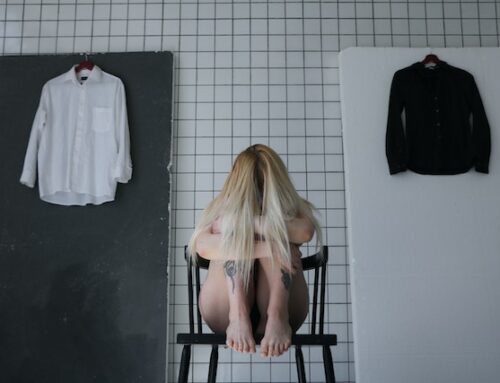Depression and Mental Health: Mourning Rejection and Learning to Let Go
November 20, 2020
Dealing with the rejection that comes with being a writer is never easy. And I’ve spent the majority of my life feeling rejected. By strangers when I’m triggered. By doctors and healthcare workers who dismiss my concerns. By loved ones who take my responses to my triggers personally. So you’d think by now, I would be used to rejection. And when it comes to being rejected because of my triggers and disorders, I am learning to have a thicker skin. To not care as much about what others think. To fight harder to believe in myself. But it’s something I’m still trying to learn to do when it comes to the rejection of my writing.
My neurological disorders and triggers are things I’ve had to learn to accept, especially when they cause me to feel rejected. Over a lot of time and with a lot of therapy, they are things I’ve grown to learn I cannot change about myself. I’ve realized they are things that happened to me as a result of my trauma. Things that are out of my control. And when you’ve suffered trauma, all you want is control. As it helps you feel safe. But while I’m fully aware we cannot control the things that happen in life, my writing is typically something I can control. Until it’s rejected. Until my voice feels stifled. Until I feel unable to share. Unable to help. Making me feel out of control. Like I’m lost. Purposeless.
Perhaps it’s because my writing is something I choose. Something I put time and love and care into. I am the most vulnerable when I write. The most open. And in that way, writing is the most intimate piece of myself. Which is probably why it’s still such a struggle to have it rejected.
But what I’m learning is that I have to mourn each rejection as a loss just as I have to mourn other losses that occur in my life. Other disappointments. And I’m finding that it is only by partaking in my mourning process—by acknowledging the pain and the loss and letting it go—that I am able to move forward. To move past it. And to, eventually, try to get published again.
When your mental health suffers, especially when dealing with a disability, there are millions of things in a day that you need to let go of. Things like having a difficult time leaving your house. Or like being triggered by a sound or a movement in public. Things like being different than others. Or having others not understand your differences. Things like having to practice so much self-care, you’re exhausted just trying to get through the day. Or when you’re so discouraged, you have a hard time getting out of bed. Things like feeling like a burden to others. Challenging you to question your worth.
And there’s a danger in not letting these things go as they will only pull us back down. Making us relive our trauma. Staying in the energy of the horrible things that have happened to us. And letting go teaches us to move past it. For it is only when we let go that another door opens. Allowing for something else to come in. Something healthier. Something filled with sunshine. Filled with light.
And I’m learning that it is only by setting my thoughts to these positive things that the heaviness starts to lift a little. That the tasks and the days and the weeks seem less daunting. That I am able to feel more joy. To seek pleasure in the small things. To manage my expectations. To stop taking things personally. To hear my Higher Self. To recover from being triggered more quickly. To understand my purpose. And to let go of anything that gets in my way of fulfilling it.
Subscribe to my website | Like me on Facebook | Follow me on Twitter | Follow me on Instagram
Image by S. Hermann & F. Richter from Pixabay










